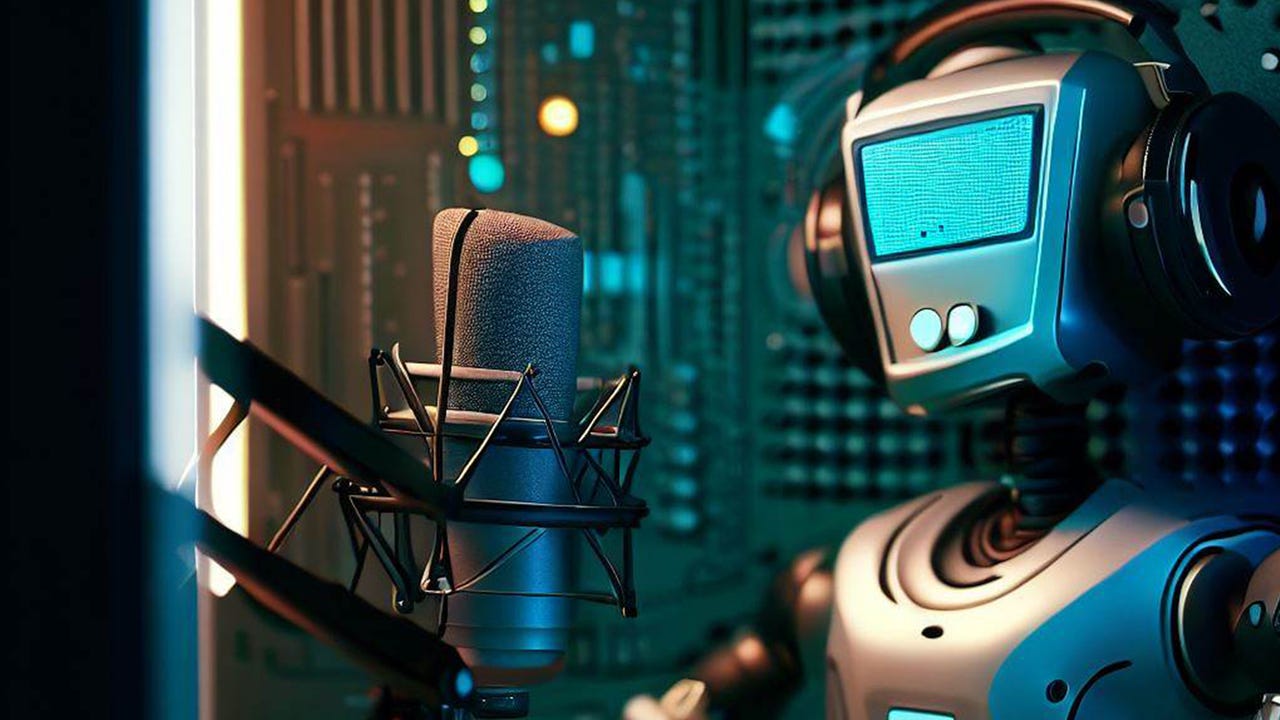Would you listen to AI-run radio? This station tested it out on listeners

ChatGPT and other artificial intelligence tools dominate headlines with speculation about how far generative AI can reach and what it can do -- and one radio station tested if the technology could replace its anchors and writers.
The people behind Couleur 3, an inventive European radio station in Switzerland, broadcast AI-generated radio shows for 13 hours on April 27th, where the scripts were generated using ChatGPT and other AI text generators, the music program was created by algorithms, and the voices of five hosts were cloned by a movie production company.
Also: Want a compassionate response from a doctor? You may want to ask ChatGPT instead
Listeners were reminded every 20 minutes that the programming was AI-generated and, yes, the reminder was also done with one of the cloned voices. For one day of programming, from 6am to 7pm, AI ran the show -- with the exclusion of news bulletins.
For the reminder, a voice said: "Our voice clones and AI are here to unsettle, surprise, and shake you. And for that matter, this text was also written by a robot."
"Give us back our humans!"
Couleur 3, which is part of Radio Television Suisse (RTS), performed the experiment with the goal of exploring strengths and weaknesses of AI and its application in the future. The station hosted a forum through WhatsApp for feedback in text and audio, where listeners could share their thoughts.
Also: AI might enable us to talk to animals soon. Here's how
"It definitely doesn't replace humans," was one of the messages received during the first morning hours of the experiment. Another read, "Give us back our humans!", with others saying, "It's impressive what we can do with this tool."
Antoine Multone, head of Couleur 3, said in a statement from RTS: "It's not easy distinguishing between a human and a robot speaking. However, this experiment also shows us that creativity, surprise, and humor remain human characteristics -- and this reassures us, even though we had no doubt about it from the beginning of the project. This day shows us the way forward: working on added value and originality in our content."
The company also said it met its main goal to explore both the innovative aspect and limitations of generative AI.
Also: Generative AI might soon face some major copyright limitations from the EU
RTS and Couleur 3 acknowledged that, while the technology is highly useful for research, improving productivity, and becoming more efficient in many ways, it's still unable to replace the creativity and emotions that come with the human aspect.
